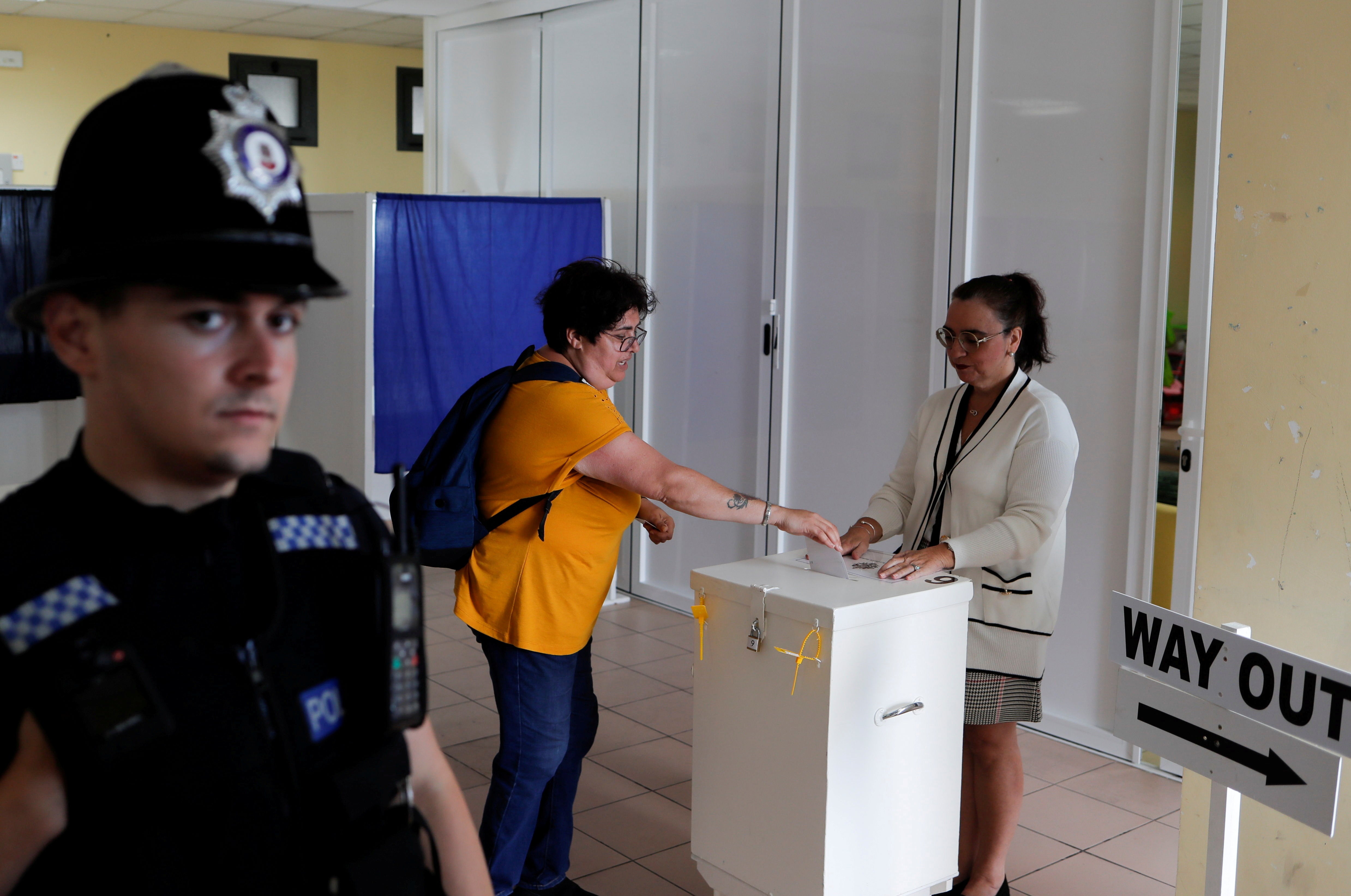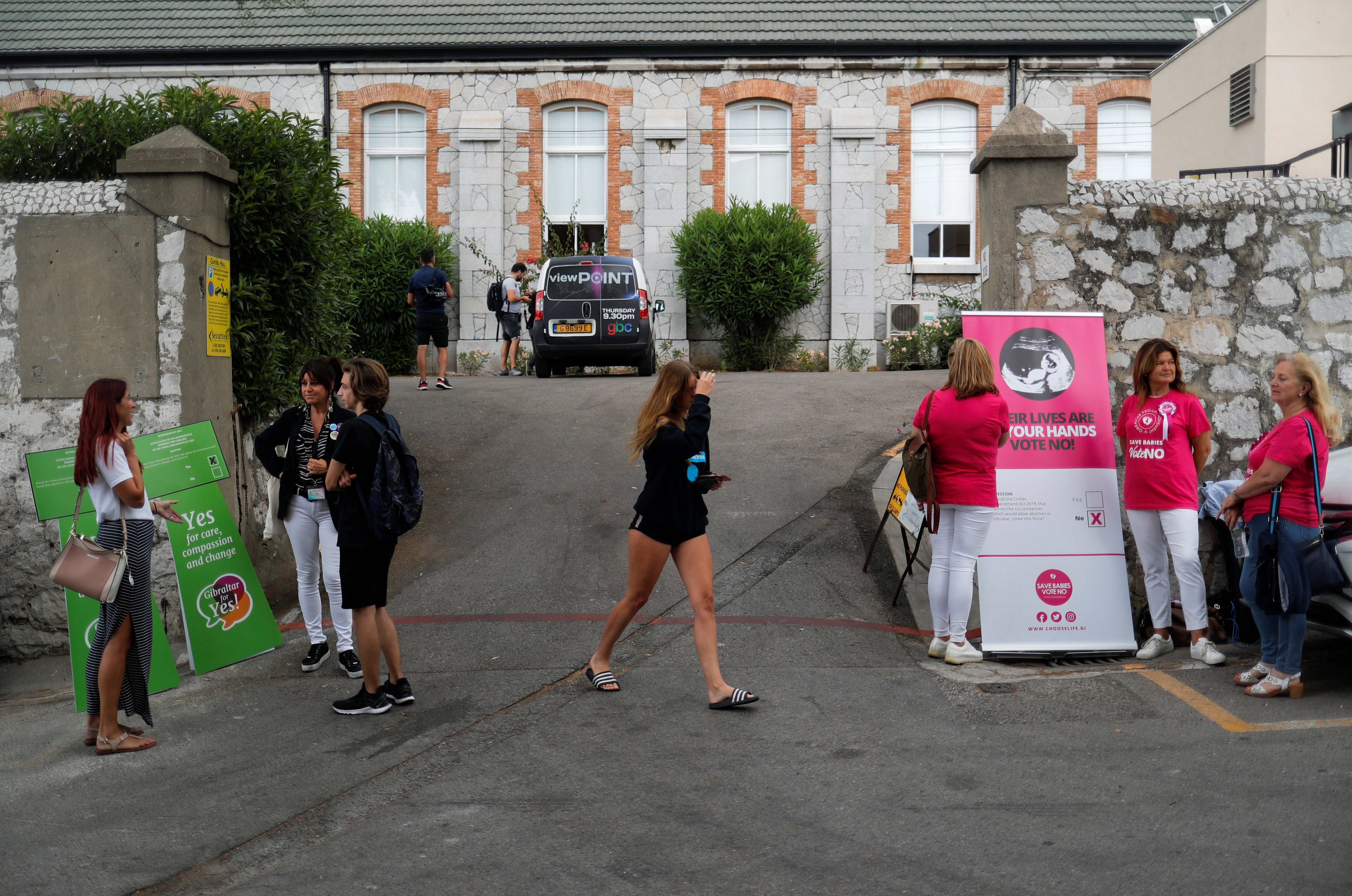‘A huge sense of relief’: Gibraltar votes yes to ease draconian abortion laws
The British territory has voted for change on abortion but now campaigners will fight to ensure it is enforced properly, reports Ella Glover

“It was a great result,” said Marlene Hassan-Nahon, an independent MP and pro-choice campaigner.
She was speaking after Gibraltar voted in a historic referendum to ease the country’s draconian abortion laws.
A 62 per cent majority clearly backed change to restrictive laws so as to allow abortion to be legalised up to 12 weeks after conception in the case of a mother’s physical or mental health being at risk. Currently, abortion is illegal in the British Overseas Territory unless a mother’s life is in danger
The referendum was originally meant to be held in March 2020, but was postponed due to the outbreak of the pandemic.
Despite fears the vote could divide the community, a clear majority voted in favour, but a low turnout was notable. Just over half – 52 per cent – of the electorate voted in the referendum, totalling 12,313 people. Those under 20 accounted for little more than two per cent of all votes cast.
“The last year campaigning has been very difficult because of Covid and I think people were already very saturated by the government’s messages and public warnings, and all the restrictions that we had, which I think had a lot to do with the low turnout,” said Ms Hassan-Nahon.
Christina Linares, the co-founder of Students for Yes, a subsection of the official pro-choice campaign concerning students and young people, told The Independent that this may be because young people in Gibraltar are “fatigued with this process, which has been going on for nearly three years”.
She said that “a lot of young people didn’t even register” and added that, while many young men in Gibraltar do not feel it was their place to have a say on women’s issues, “they might as well vote for a law that gives women a choice”.
One pro-choice campaigner, who asked to remain anonymous, terminated a pregnancy in Spain before a referendum had been proposed. With the stigma surrounding abortion in Gibraltar, and a lack of adequate aftercare, shame and guilt became the main feelings she associated with the procedure.
“The abortion debate exacerbated my feelings of guilt and, at the same time, the comments angered me,” the campaigner told The Independent. “With no support or counselling I found myself grieving even two years later.”
After the count, the campaigner said she felt “a huge sense of relief” and that “the sense of shame I have felt has slightly washed away”.

However, she said: “I feel the new law to be very restrictive. Obviously it is a way forward but the reasons why women can access it are quite limited.”
Gibraltar’s chief minister Fabian Picardo has pledged to “put in place mechanisms for counselling and support of women to ensure that any woman who calls at the door of the Gibraltar Health Authority, believing that she needs an abortion, will have the support that she needs”.
On what happens next, Ms Hassan-Nahon said she will be “campaigning vigorously... to ensure that these health services are put in place in a robust way, with all the mental, physical and psychological services that women need to give them the best shot at whatever future they’re looking for”.
She added: “I also want to focus on bridging the divides within the community that have been caused because of this referendum in a small place which prides itself on being so close-knit.”
In a speech after the count, Isobel Allul, of the official Gibraltar for Yes! campaign, said: “Today, Gibraltar voted yes – yes for human rights, yes for women and girls, yes for trusting doctors and healthcare professionals, yes for choice, yes for compassion and empathy, yes for healthcare and care, yes for reproductive rights, yes for female bodily autonomy and yes for abortion that is at home, safe and legal.”
Join our commenting forum
Join thought-provoking conversations, follow other Independent readers and see their replies
Comments
Bookmark popover
Removed from bookmarks